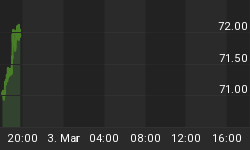The idea of earnings driving the broad stock market is a myth.
It's corporate earnings season again, and everywhere you turn, analysts talk about the influence of earnings on the broad stock market:
- US Stocks Surge On Data, 3Q Earnings From JPMorgan, Intel (Wall Street Journal)
- Stocks Open Down on J&J Earnings (Washington Post)
- European Stocks Surge; US Earnings Lift Mood (Wall Street Journal)
With so much emphasis on earnings, this may come as a shock: The idea of earnings driving the broad stock market is a myth.
When making a statement like that, you'd better have proof. Robert Prechter, EWI's founder and CEO, presented some of it in his 1999 Wave Principle of Human Social Behavior (excerpt; italics added):
Are stocks driven by corporate earnings? In June 1991, The Wall Street Journal reported on a study by Goldman Sachs's Barrie Wigmore, who found that "only 35% of stock price growth [in the 1980s] can be attributed to earnings and interest rates." Wigmore concludes that all the rest is due simply to changing social attitudes toward holding stocks. Says the Journal, "[This] may have just blown a hole through this most cherished of Wall Street convictions."
What about simply the trend of earnings vs. the stock market? Well, since 1932, corporate profits have been down in 19 years. The Dow rose in 14 of those years. In 1973-74, the Dow fell 46% while earnings rose 47%. 12-month earnings peaked at the bear market low. Earnings do not drive stocks.
And in 2004, EWI's monthly Elliott Wave Financial Forecast added this chart and comment:

Earnings don't drive stock prices. We've said it a thousand times and showed the history that proves the point time and again. But that's not to say earnings don't matter. When earnings give investors a rising sense of confidence, they can be a powerful backdrop for a downturn in stock prices. This was certainly true in 2000, as the chart shows. Peak earnings coincided with the stock market's all-time high and stayed strong right through the third quarter before finally succumbing to the bear market in stock prices. Investors who bought stocks based on strong earnings (and the trend of higher earnings) got killed.
So if earnings don't drive the stock market's broad trend, what does? The Elliott Wave Principle says that what shapes stock market trends is how investors collectively feel about the future. Investors' mood -- or social mood -- changes before "the fundamentals" reflect that change, which is why trying to predict the markets by following the earnings reports and other "fundamentals" will often leave you puzzled. The chart above makes that clear.
Get Your FREE 8-Lesson "Conquer the Crash Collection" Now! You'll get valuable lessons on what to do with your pension plan, what to do if you run a business, how to handle calling in loans and paying off debt and so much more. Learn more and get your free 8 lessons here.
















